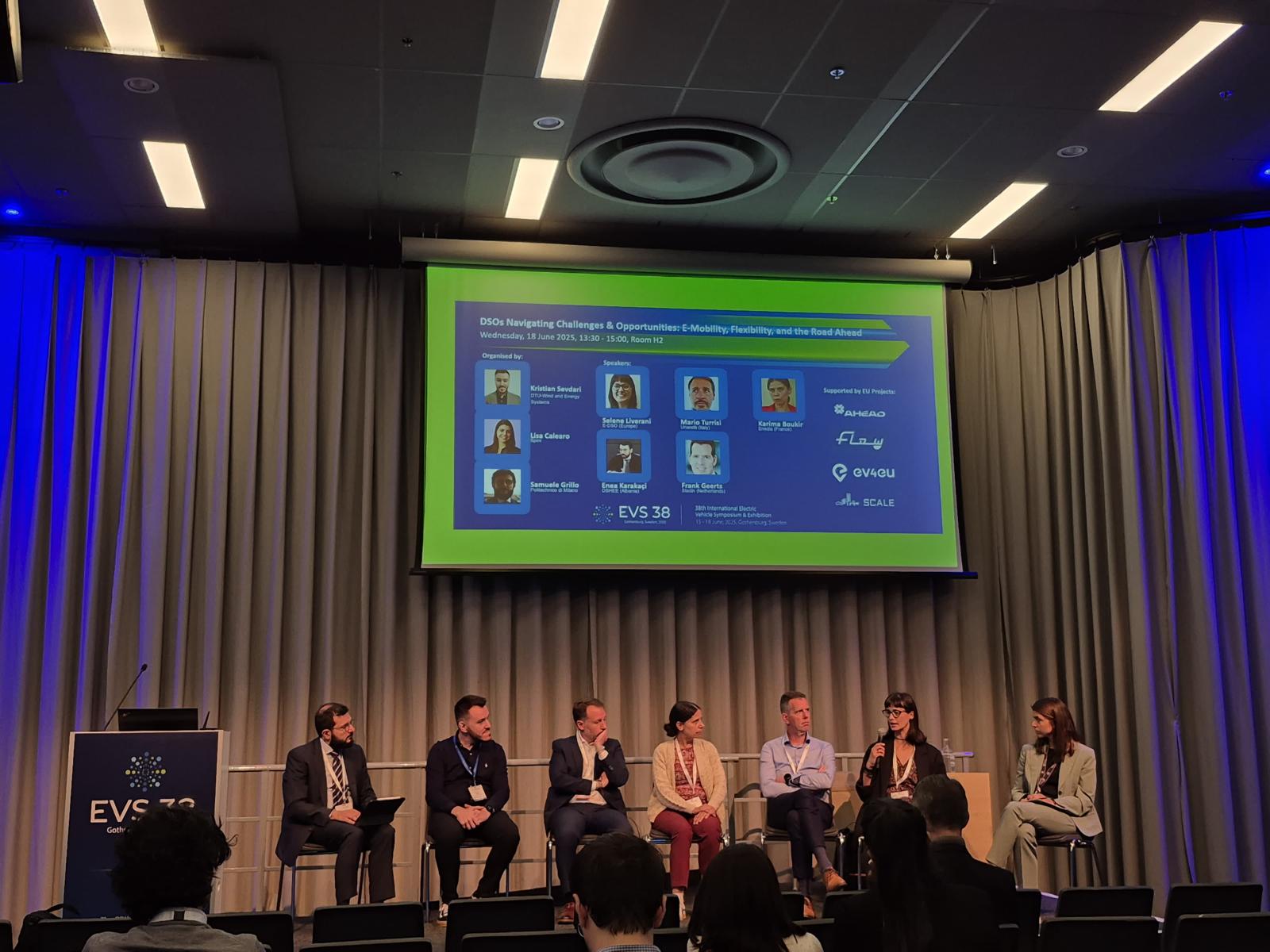At EVS38, representatives from European Distribution System Operators (DSOs) came together for a panel discussion “DSOs’ Challenges and Opportunities: E-Mobility, Flexibility and the Road Ahead.” The panel gathered industry experts, researchers, and policymakers, supported through ongoing Horizon Europe projects AHEAD, SCALE, FLOW, and EV4EU.
The session explored how DSOs across Europe are preparing for the rapid rise in electrified transport and increasing electricity demand. Speakers shared current and future challenges and their innovative strategies.
Organised and moderated by Samuele Grillo (Politecnico di MilanoI), Lisa Calearo (Spirii), and Kristian Sevdari (DTU Wind and Energy Systems) with the support of E-Mobility Europe, the event panel featured insightful exchanges from Selene Liverani (E.DSO), Karima Boukir (Enedis), Mario Turrisi (Unareti), and Frank Geerts (Stedin/ ElaadNL). They offered candid reflections on local complexities and shared efforts to future-proof Europe’s grids—grids that must be smarter, more flexible, and supported by robust regulation.
Among the most promising tools discussed were flexible connection agreements, which can optimise existing network capacity and reduce long wait times for new connections—particularly crucial as demand from EVs and electrified heating surges across Europe. According to E.DSO, smart charging strategies and flexible agreements can help DSOs avoid up to 20% of infrastructure upgrades.
Panelists also emphasised the need for mandatory registration and certification of private EV chargers – a step seen as essential to improve DSOs’ visibility behind the meter and enable more accurate grid operation in the face of rapidly increasing residential charging.
As electrified transport accelerates, anticipatory grid investments must become standard practice. Panelists emphasised that regulators need to acknowledge forward-looking infrastructure planning in policy frameworks and to promote greater coordination among DSOs, Charge Point Operators (CPOs), and public authorities.
While flexibility from EVs—such as off-peak smart charging and vehicle-to-grid technologies—was highlighted as a powerful asset, speakers unanimously agreed that flexibility cannot replace physical investments.
Dutch operator ElaadNL warned that space constraints and slow permitting are major roadblocks for grid expansion. Enedis echoed this with data that a primary substation in France costs around €10 million and takes 10 years to develop, while Milan faces even higher costs due to urban density.
Europe’s grid operators are innovating quickly, but success depends on regulatory evolution, skilled workforce development, and cross-sector collaboration. With an estimated 30,000 to 40,000 engineers needed in the Netherlands alone, the human factor remains critical.
As EV adoption continues to grow, the message is clear: flexibility and infrastructure investment must advance together to keep the energy transition on track. The role of EU-wide collaboration and shared learnings from Horizon Europe projects will remain key to accelerating innovation and building a resilient, future-proof decarbonised energy future.
